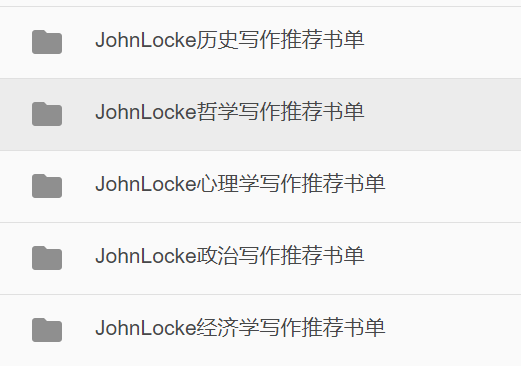- 翰林提供学术活动、国际课程、科研项目一站式留学背景提升服务!
- 400 888 0080
2024年John Locke约翰洛克写作竞赛正式启动!John Locke竞赛推荐理由
John Locke官网最近公布了2024年比赛题目,标志着新一季竞赛正式开始。作为一项在全球范围内享有盛名的写作竞赛,John Locke每年都吸引着大量的初中和高中生积极投稿。去年的注册人数更是超过19,000人,创下了历史新高。那么John Locke竞赛到底是什么?初中生和高中生有必要参加吗?工欲善其事,必先利其器,如果你感兴趣但又有疑虑,这份John Locke比赛指南可一定要收好!
John Locke写作竞赛介绍
约翰·洛克论文竞赛(John Locke Essay Competition)以17世纪英国著名哲学家、古典自由主义鼻祖John Locke命名。该竞赛由独立教育组织John Locke Institute与普林斯顿大学、牛津大学联合参办,是人文社科领域中含金量最高的国际征文比赛之一。
该竞赛由Top10院校的专家轮流担任评委,牛津大学资深教授亲自评奖。竞赛设有哲学、政治学、经济学、历史学、心理学、神学和法学等七个学科类别,每个学科类别设有三到四个不同的问题。同时,针对14岁及以下的学生,竞赛还设有低年级组(Junior Prize),提供六到七个题目供选择。
参赛者需要从所选学科类别中选择一个问题,撰写一篇不超过2000字的议论文(argumentative essay)。文章要求学生清晰地展现自己的观点,并围绕观点进行合理的论证。
评审过程注重考察学生的多个方面素质。首先,学生需要对所选话题有深入的了解和研究。其次,学生需要熟悉议论文的写作格式和要求,包括基本的文章框架和范式。评审还会关注论证的质量,即论证是否充分且论据是否有效使用。最后,整体写作能力也会被评审考量,包括语言表达、逻辑体系、语言风格、语法问题和规范格式等。
每个学科类别和低年级组将分别评选出一、二、三等奖各一名,其中最优秀的参赛者将被授予终极大奖(Grand Prize),并获得额外的10000美元奖学金。此外,未获奖但表现出色的文章将被提名入围(shortlist),并在入围者中区分出极其卓越(High Distinction)和卓越者(Distinction)。
2024年John Locke赛事时间线(均为英国时间)
注册时间
参赛者必须在2024年5月31日前于官网完成注册,方可进行投稿。注册将于4月1日开放。
提交时间
● 截止日期:2024年6月30日23时59分。高年级组参赛学生需确保在此日期时不超过18岁;低年级组学生需在此日期时不超过14岁。
● 延迟提交:如果出于任何原因错过了6月30日的截止日期,符合以下两种情况的学生可以延迟提交a) 必须在原定截止日期的24小时内通过信用卡支付 20美元迟交费用;b) 论文必须在7月10日23时59分之前提交。
入围通知时间
2024年7月31日
John Locke报名投稿-免费领资料【翰林提供报名服务】

福利:John Locke 推荐书单(电子书)

John Locke竞赛推荐理由
John Locke竞赛是一项备受英美名校认可的高含金量世界性奖项。历年来,获得该竞赛奖项的学生有超过一半被美国常春藤学校和英国G5名校中的至少一所录取,包括普林斯顿大学、哈佛大学、耶鲁大学、斯坦福大学、芝加哥大学、宾夕法尼亚大学、哥伦比亚大学和乔治敦大学等。
参加John Locke竞赛可以获得一篇精心打磨的学术文章,为申请高分夏校或其他科研项目提供Writing Sample。无论是理工科、文社科还是商科类的项目,申请者的学术背景对于金字塔尖项目的申请至关重要。通过参加比赛,学生经历一轮系统的学术写作训练,形成一篇架构严谨、行文流畅的学术文章,为之后的项目申请提供了有力的支持。
参加John Locke竞赛可以掌握议论文写作的核心技巧,更好应对国际课程和大学的学术写作要求。作为一项受众广泛、声誉很高的竞赛,参赛学生不仅可以赢得奖项,还可以在成文过程中掌握学术性文章的写作技巧,学习议论文的写作格式,培养批判性的学术思维。这对国际课程体系下的学生来说是必不可少的能力,也能为大学学习打下坚实的基础。
参加John Locke竞赛可以促进在不同学科领域的深度阅读和思考。该竞赛的题目范围非常广泛,学生可以从多个角度切入。在准备写作之前,学生需要认真阅读与题目相关的书籍和文章,并做好笔记,逐渐形成自己的观点。在写作过程中,学生需要引用各种资料,结合经典文献和现实案例,丰富文章的论证层次。这样的研究和写作过程能让学生深入了解所选题目涉及的学科基本背景,获得知识和思维上的进阶。
论文题目
1、Philosophy 哲学
Q1. Do we have any good reasons to trust our moral intuition?
Q2. Do girls have a right to compete in sporting contests that exclude boys?
Q3. Should I be held responsible for what I believe?
2、Politics政治
Q1. Is there such a thing as too much democracy?
Q2. Is peace in the West Bank and the Gaza Strip possible?
Q3. When is compliance complicity?
3、Economics经济学
Q1. What is the optimal global population?
Q2. Accurate news reporting is a public good. Does it follow that news agencies should be funded from taxation?
Q3. Do successful business people benefit others when making their money, when spending it, both, or neither?
4、History历史
Q1. Why was sustained economic growth so rare before the later 18th century and why did this change?
Q2. Has music ever significantly changed the course of history?
Q3. Why do civilisations collapse? Is our civilisation in danger?
5、Psychology心理学
Q1. According to a study by four British universities, for each 16-point increase in IQ, the likelihood of getting married increases by 35% for a man but decreases by 40% for a woman. Why?
Q2. There is an unprecedented epidemic of depression and anxiety among young people. Can we fix this? How?
Q3. What is the difference between a psychiatric illness and a character flaw?
6、Theology神学
Q1. “I am not religious, but I am spiritual.” What could the speaker mean by “spiritual”?
Q2. Is it reasonable to thank God for protection from some natural harm if He is responsible for causing the harm?
Q3. Does God reward those who believe in him? If so, why?
7、Law法律
Q1. When, if ever, should a company be permitted to refuse to do business with a person because of that person’s public statements?
Q2. In the last five years British police have arrested several thousand people for things they posted on social media. Is the UK becoming a police state?
Q3. Your parents say that 11pm is your bedtime. But they don’t punish you if you don’t go to bed by 11pm. Is 11pm really your bedtime?
8、JUNIOR prize
Q1. Does winning a free and fair election automatically confer a mandate for governing?
Q2. Has the anti-racism movement reduced racism?
Q3. Is there life after death?
Q4. How did it happen that governments came to own and run most high schools, while leaving food production to private enterprise?
Q5. When will advancing technology make most of us unemployable? What should we do about this?
Q6. Should we trust fourteen-year-olds to make decisions about their own bodies?

最新发布
© 2026. All Rights Reserved. 沪ICP备2023009024号-1









